Imagine a mother sending her daughter to secondary school in rural Uganda. A contract teacher instructing 130 million primary school students in a New Delhi slum. A chancellor reviewing exam results in Detroit. In each of these scenarios, children are in school—and that’s a good thing, but it isn’t everything. It is very likely that each of these individuals still wonders, “What are my children learning?”
It is no longer a secret or a surprise that too often our children are failing to learn the very basics—even after spending years in school. In 41 countries, one in three students who leave school after grade five or six still cannot read all or part of a sentence. So while we should rightly celebrate that millions of more children over the last decade have completed a basic primary education, the sad reality is that this victory is too often met with little to no learning.
Call it a ”learning crisis,” “global skills divide” or ”income achievement gap” but the fact remains that going to school hasn’t automatically translated into learning in school.
The good news is that, coupled with growing recognition of the learning problem, there has been more investment and attention in understanding what helps in getting children into school, staying in school, and learning things of value while there. We know much more than before about what works in particular contexts, and what we know is more grounded in an expanding body of rigorous, empirical research and evaluation. The challenge we now confront is how best to expand, replicate or deepen these results to reach millions of children and young people.
How do we move beyond effective but small-scale projects? How can we design, finance and deliver initiatives that are truly commensurate in scope to the need for learning across the globe? How do we make sure that we continue to learn not only what are the technical components of an intervention that make it effective—but also understand which factors in the social, political and economic environment enable it to work (or in some cases, not work)? And how do we, as a global community, ensure that we are documenting, sharing and learning from these experiences so that we can use the results to reach an even greater number of children?
These questions are at the heart of Millions Learning, a new project at the Center for Universal Education at Brookings.
Calling for Case Studies to Learn about Learning
Millions Learning seeks to understand how effective learning can be achieved at scale. It is looking at evidence from interventions across the globe: programs and policies that have successfully gotten children in school and learning; and ones that didn’t, or did so only in specific contexts. Indeed, the key to Millions Learning will be in discovering why learning interventions may work in some contexts and not in others, and drawing lessons from this that are applicable in a wide variety of contexts around the world.
We know that a universal blueprint to scale does not exist. Instead, we are interested in deepening the understanding of key factors that can contribute to successful scaling up of learning. In particular, we will explore in-depth the role of four factors in learning improvements: finance, partnerships, data and technology. And just as—if not more—importantly, we also want to understand what has been behind failures to scale.
Millions Learning will build on existing literature and research initiatives on scaling up—in development, health and other disciplines—as well as identify gaps in the knowledge base. We will discuss experiences and lessons learned with going to scale from a variety of sources, including policymakers, practitioners, academics, donors and private sector groups.
As part of this process, we are issuing a global call for case studies to identify examples of programs and policies from early childhood development through post-primary education that have contributed to large-scale learning gains. In exploring these cases, the aim is to draw evidence not only from well-known cases but also to hear from local, less well-known examples of where learning has improved. Through these cases, we plan to document and learn from a wide variety of experiences to inform our analysis and recommendations.
By September 2015, we plan to release our findings. We will summarize examples of where we have seen large-scale gains in learning and lay out some of the cross-cutting themes and principles of success or failure.
A concern with scale is certainly not new. Going to scale has been the Holy Grail in the development enterprise for some time. Yet, for all the interest and attention that it has received, the knowledge of how to improve both access and learning at a large scale remains elusive. Millions Learning hopes to contribute to changing this by providing a productive link between research and policy.
One thing is clear. To move from chipping away at the crisis to tackling it head on will require pooling our collective experiences, wisdom and efforts. We hope that you will join us on this journey to better understand how to support, build and sustain policies and programs that provide learning opportunities to millions of children around the world.
The Brookings Institution is committed to quality, independence, and impact.
We are supported by a diverse array of funders. In line with our values and policies, each Brookings publication represents the sole views of its author(s).

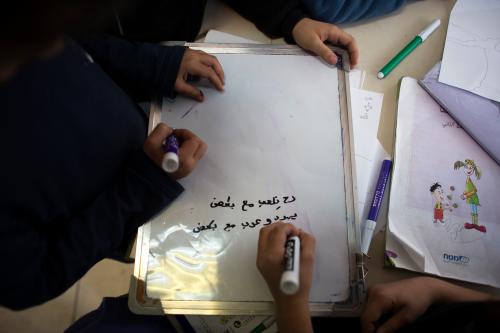
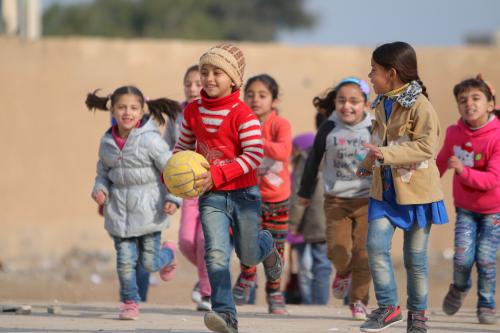
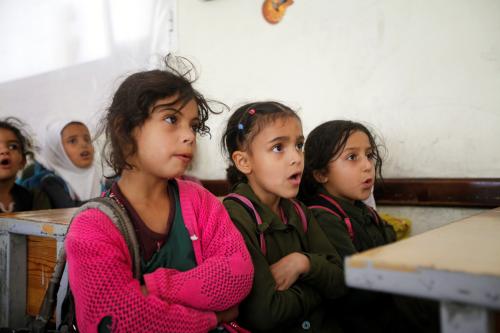
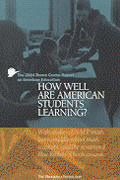


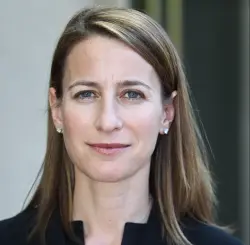


Commentary
Millions Learning: Understanding What it Takes to Improve Learning and Scale it Across the World
June 26, 2014